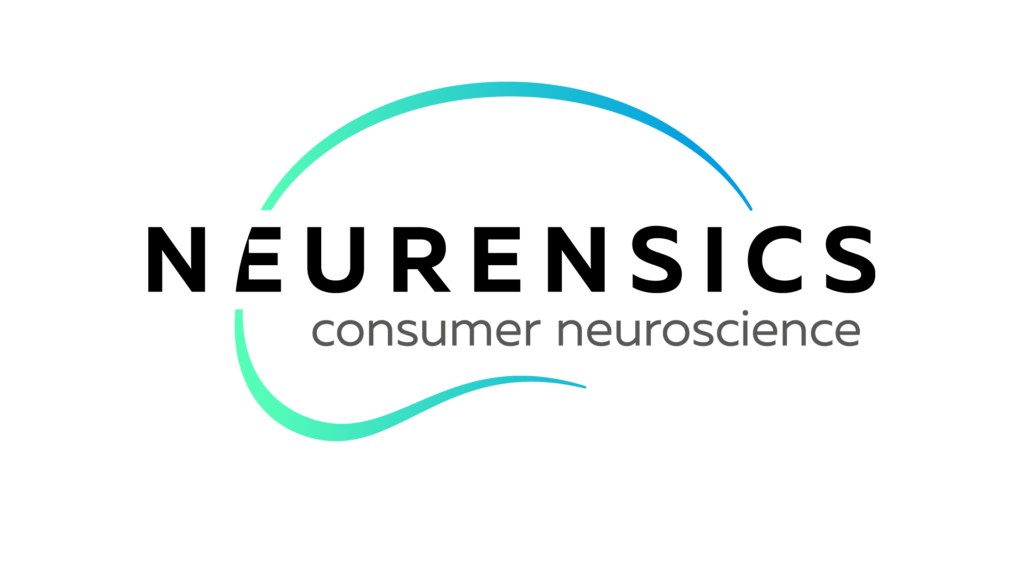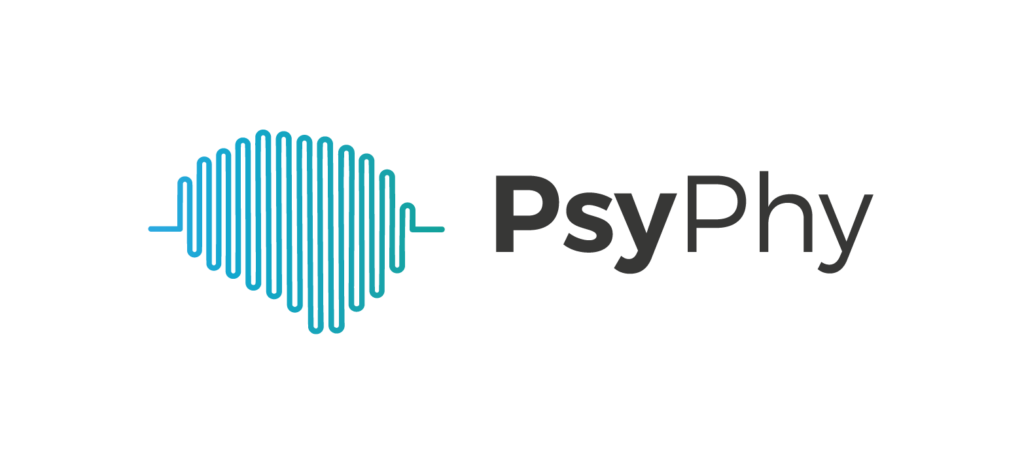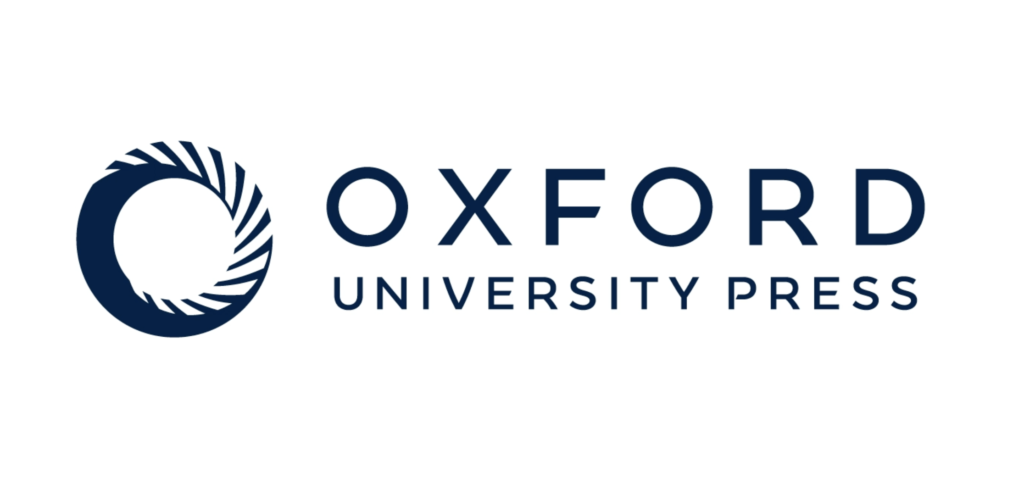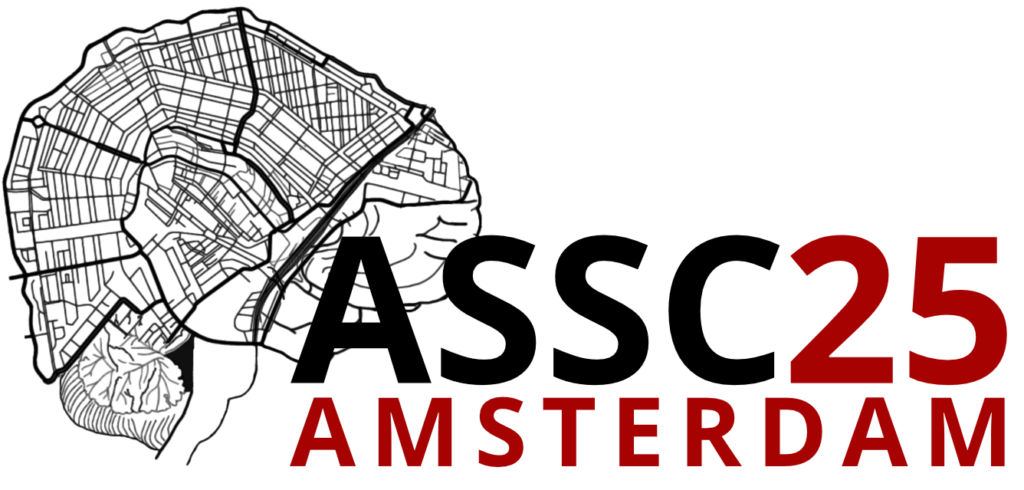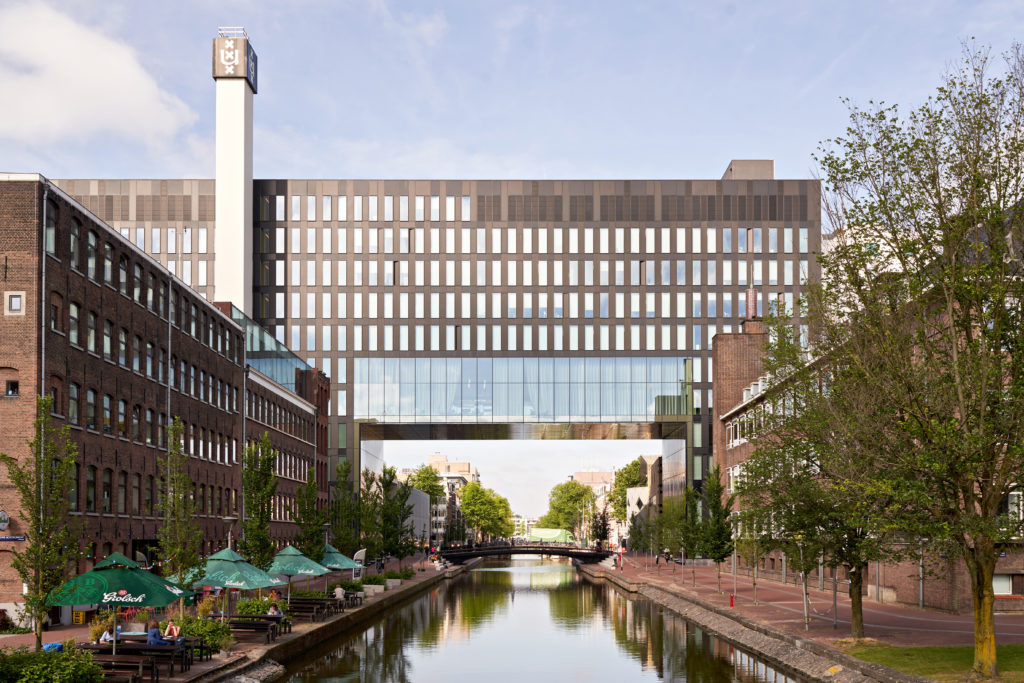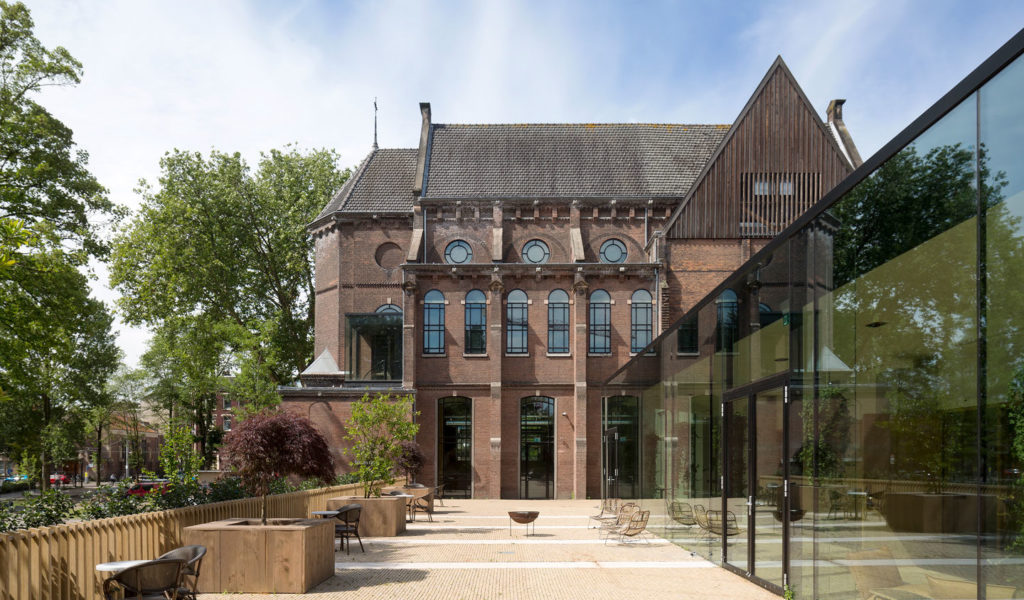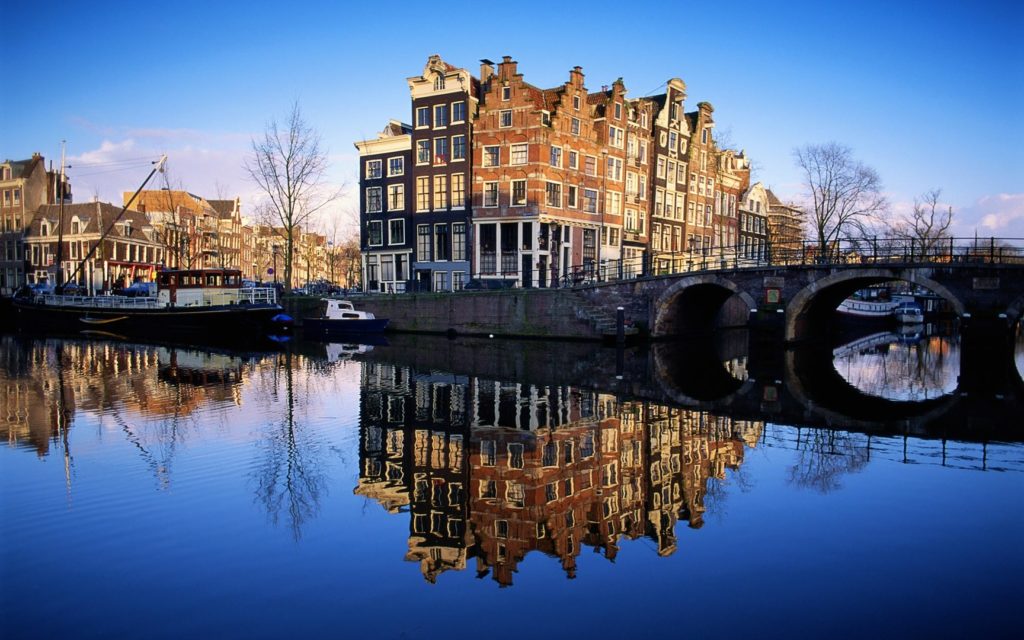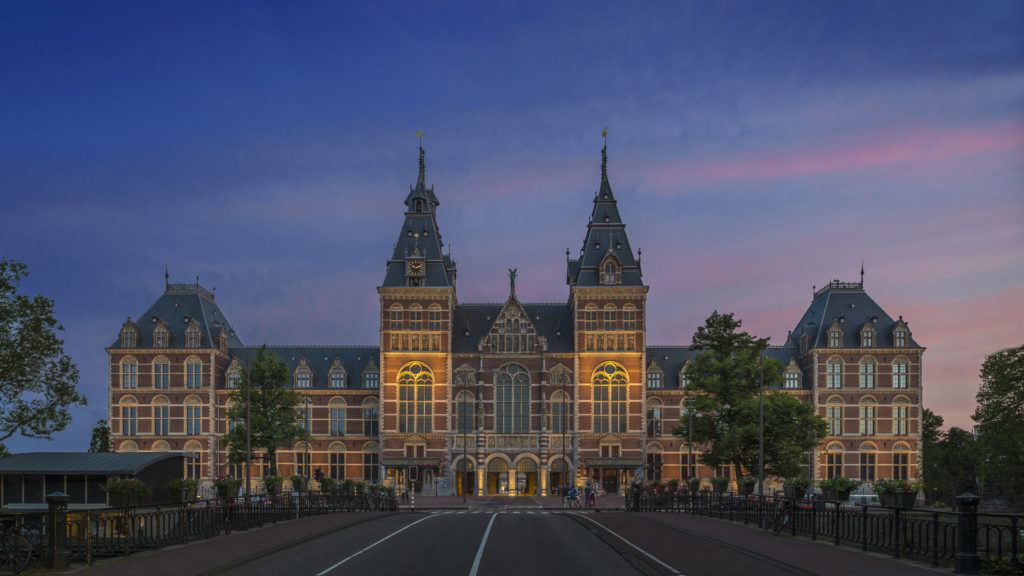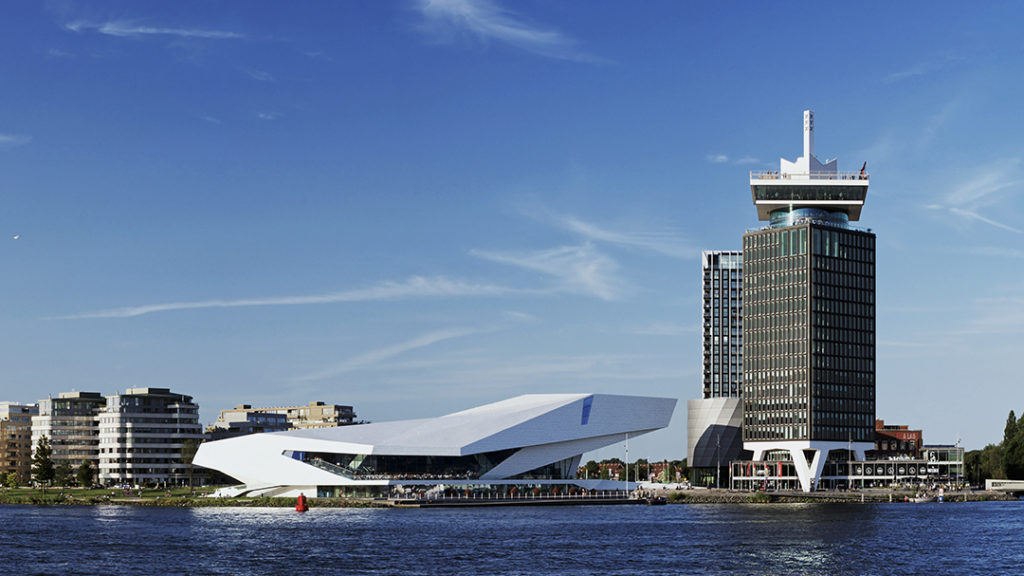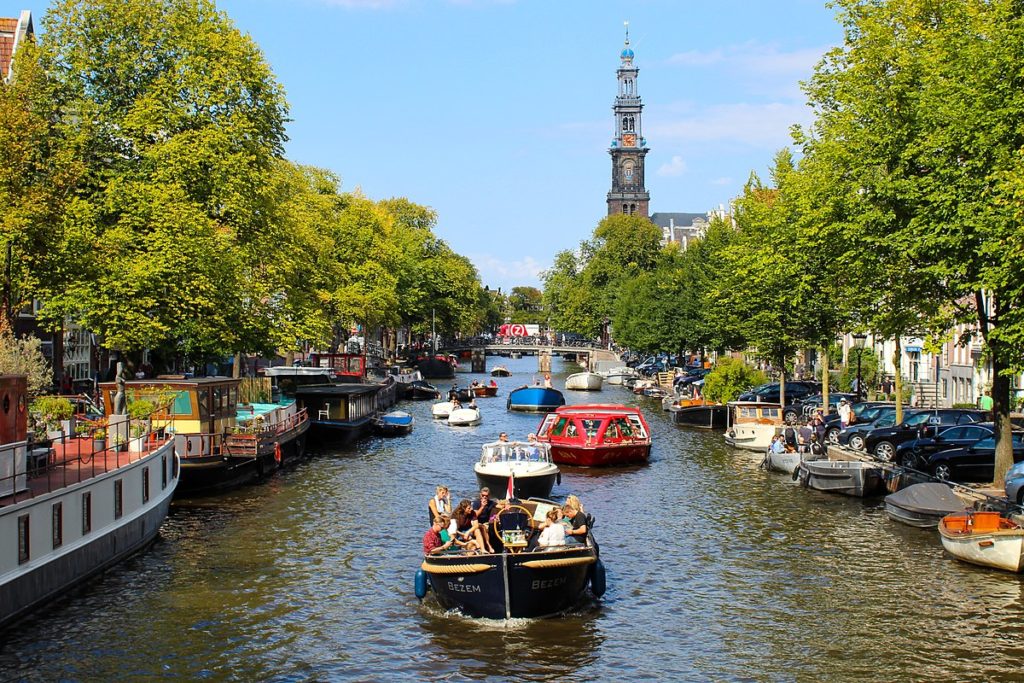ASSC 25
12th-15th July 2022, Amsterdam, The Netherlands
ASSC 25 in Amsterdam, The Netherlands
We are happy to announce that the annual meeting of the Association for the Scientific Study of Consciousness will be hosted on site once again, after a two year corona-related hiatus. The 25th edition of the ASSC meeting will be held at the University of Amsterdam (The Netherlands) on 12-15 July 2022.
ASSC 25 is almost here!
Just a few more weeks before ASSC 25 will kick off in Amsterdam! We are happy to see that so many of you are joining us in Amsterdam this summer. In fact, we are approaching our maximum capacity for attendees (500), so register soon to be sure of your spot during this years’ conference. People who register for the conference are expected to attend in person (so travel to Amsterdam), unless there are unforeseen COVID-related issues.
Travelling to Amsterdam
Please note that you are responsible for arranging your trip to Amsterdam, including travel and accommodation. If you have not yet planned your trip, now is the time to do this. Some information regarding accommodation can be found below. Please be aware that the amount of flights to and from Schiphol International Airport are limited this summer due to personnel shortage, and that this may affect your flights. We advise you to keep an eye out for any changes in your travel itinerary.
ASSC 25 program
The full conference program is now online! Besides symposia, tutorials, posters sessions, concurrent talks and of course ‘The Great Consciousness Debate’, ASSC 25 also includes the following social events:
- ASSC 25 reception: Tuesday, July 12th (venue: Hotel ArenA)
- Conference dinner: Thursday July 14th (venue: Noorderlicht, vegetarian BBQ)
- Conference party: Friday July 15th (venue: Brazilian Roots)
More detailed information on the program can be found below. On the bottom of this page you can find more information about the location of the conference and how to find accommodation near the conference site.
ASSC 25 app
The official ASSC 25 Amsterdam app can be downloaded from the AppStore and Google Play Store. You can use the app to create a personalised program, view the floor plan of the conference location and connect with other researchers.
We hope to see you soon in Amsterdam!
Simon van Gaal (s.vangaal@uva.nl, general chair)
Steven Scholte (h.s.scholte@uva.nl, organizational chair)
Johannes Fahrenfort (j.j.fahrenfort@vu.nl, chair of Scientific Committee)
Stijn Nuiten & Lola Beerendonk (assc25.ams@gmail.com, website and technical assistance)
ASSC 25 program
The daily conference schedule can be seen below. Click on the tabs to see the program for each day of the conference. The full program of concurrent talks and poster sessions can be downloaded by clicking the button below.
You can check-in for the conference at the registration desk from Tuesday 12th 08:00 (for check-in times on other days see below).
If you have any comments or questions regarding the program please contact us at: assc25.ams@gmail.com.
Oral presentation instructions:
- Talks will take 12 minutes, followed by 3 minutes for questions.
- All lecture rooms are equipped with a beamer, lectern, desktop, microphone, whiteboard and WIFI.
- Your presentation should be made in PowerPoint or another format supported by Microsoft Windows (e.g. as a PDF file).
- Please bring your presentation on a USB-stick. We can upload your presentation to the desktop 30-45 minutes before your session starts.
- There will be volunteers in every lecture room to assist you.
Poster presentation instructions:
- Posters should be made in portrait format (upright). The boards on which they are placed are approximately 970 mm wide and 1470 mms high, so A0 poster size (approx. 841 x 1189 mm) will fit.
- There is a poster printing shop near the conference location if you still need to print your poster.
- Attach your poster to the board with the same number as your poster.
Registration desk opens at 08:00!
- 09:00-12:00 Tutorials morning session
- 12:00-13:00 Off-site lunch (own initiative)
- 13:00-16:00 Tutorials afternoon session
- 16:15-16:30 ASSC 25 opening
- 16:30-17:30 Presidential address: Prof. Elisabeth Pacherie
- 17:30-18:30 Keynote lecture: Prof. Claire Sergent
- 19:00-22:00 Reception (venue: Hotel ArenA)
Registration desk opens at 08:00!
- 09:00-11:00 Concurrent talks 1
- 11:00-11:30 Coffee break
- 11:30-12:30 Keynote lecture: Prof. Tim Bayne
- 12:30-13:30 Onsite lunch
- 13:30-15:30 Poster session 1
- 15:30-19:30 The Great Consciousness Debate (includes snacks and drinks halfway)
Registration desk opens at 08:30!
- 09:00-11:00 Parallel symposia I: The interplay between beliefs and perceptual awareness
- 09:00-11:00 Parallel symposia II: Global Neuronal Workspace vs. Integrated Information Theory (COGITATE adversarial collaboration)
- 11:00-11:30 Coffee break
- 11:30-12:30 Keynote lecture: Prof. Pieter Roelfsema
- 12:30-13:30 Off-site lunch (own initiative)
- 13:30-15:30 Poster session 2
- 15:30-17:30 Concurrent talks 2
- 17:30-22:30 Conference dinner (a canal boat will take you to the venue: Noorderlicht, vegetarian BBQ)
Registration desk opens at 08:30!
- 09:00-11:00 Parallel symposia I: Evidence accumulation and consciousness
- 09:00-11:00 Parallel symposia II: Thought-full or thought-less: how empty can the conscious mind get?
- 11:00-11:30 Coffee break
- 11:30-12:30 Keynote lecture: Prof. Irene Tracey
- 12:30-13:30 Off-site lunch (own initiative)
- 13:30-15:30 Poster session 3
- 15:30-17:30 Concurrent talks 3
- 17:30-18:00 William James Prize
- 18:00-18:30 Closing ceremony
- 21:00-xx:xx Conference party (venue: Brazilian Roots)
Registration
Registration for ASSC 25 is open! Registration for regular conference fees is possible up until the beginning of the conference. Only ASSC-members are allowed to register for this conference. If you are not yet an ASSC-member, or if you need to renew your membership please visit: https://theassc.org/membership-options/.
During registration, you can also enrol for optional activities including tutorials and social events. If you would like to join the conference party or dinner, without attending the conference itself, please send an email to: assc25.ams@gmail.com. On the registration page, you can find more information regarding registration, registration fees and the terms and conditions. Click the button below to register now!
We are aware that some Universities are reluctant to refund academic societies’ membership fees and that some of our members were told their ASSC membership fee could not be reimbursed if not part of the registration. As membership is required to submit an abstract to the conference, we will be happy to provide a letter explaining this to your University, to help with the refund process. Please contact our secretary Florence Lourdes at: assc1997.secretary@gmail.com.
Registration fees
Early bird tickets (applicable until April 14th 2022)
Student/PhD/Postdoc: €275
Faculty staff: €425
Regular tickets
Student/PhD/Postdoc: €400
Faculty staff: €550
Abstract Submission
The deadline for submitting an abstract has officially passed. The Scientific Committee is now in the process of reviewing all submissions. Updates about acceptance of talks/posters and the full program of concurrent talks and poster sessions will follow soon.
Keynote Speakers
We are honoured to announce the following keynote speakers:
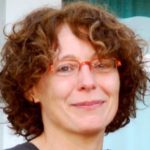
Prof. Elisabeth Pacherie
President of the ASSC
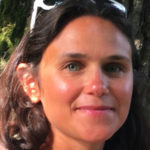
Prof. Dr. Claire Sergent
Université de Paris
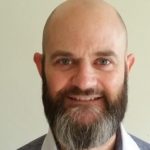
Prof. Dr. Tim Bayne
Monash University
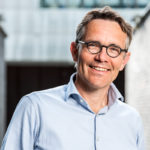
Prof. Dr. Pieter Roelfsema
The Netherlands Institute for Neuroscience
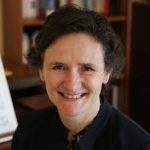
Prof. Dr. Irene Tracey
Oxford University
Symposia
The Great Consciousness Debate
We are pleased to announce that there will be an invited and extended 3-hour symposium/debate where five theories of consciousness will ‘meet’ and take center stage at this ASSC Conference.
We have invited proponents of each of these theories as a panel of experts. The five speakers are:
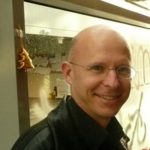
Prof. Stanislas Dehaene
Global Neuronal Workspace Theory
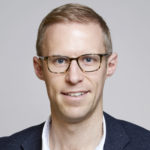
Prof. Stephen Fleming
Higher Order Theories

Prof. Melanie Boly
Integrated Information Theory
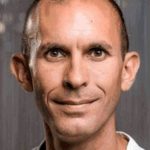
Prof. Anil Seth
Predictive Processing Theory
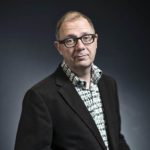
Prof. Victor Lamme
Recurrent Processing Theory
The event and the discussion will be moderated by:
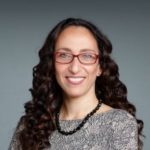
Prof. Lucia Melloni
Moderator
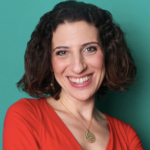
Prof. Liad Mudrik
Moderator
Traditional symposia
ASSC 25 will feature four traditional symposia. These symposia will be held in two parallel sessions (exact program will be announced later). The topics and presenters of the symposia are listed below. Click the symposium title to view presenters and a detailed description of the topic.
The interplay between beliefs and perceptual awareness
Chair
- Floris de Lange (co-chair)
- Clare Press (co-chair)
Speakers
- Floris de Lange
- Clare Press
- Philip Corlett
- Zoe Jenkin
Symposium description
Since the days of Helmholtz, it has been argued that prior beliefs play a key role in shaping perceptual awareness. We cannot rely upon the multitude of noisy inputs that continuously bombard our receptors and take time to process, and it is undisputed that perceptual experiences are an imperfect reflection of our environment (e.g., attentional and change blindness). However, many interesting paradoxes arise when considering how beliefs shape awareness and therefore this question has fascinated academics from a variety of disciplines. For instance, there is some evidence that our awareness is dominated by what we expect, but other work suggests that perception is cognitively impenetrable, or even that it is dominated by what we do not expect. Clearly the problem space here is complex, but we believe the field has advanced enough in recent years to construct plausible – and testable – theories concerning this nuanced relationship.
Answering this question will be at the heart of this symposium. The symposium will explore complementary perspectives from philosophy (Prof Jenkin), psychology (Prof Press), cognitive neuroscience (Prof de Lange) and clinical neuroscience (Prof Corlett). The speakers believe the answer lies in full consideration of the adaptive function of perceptual awareness. Perceptual awareness functions to tell the organism about the outside world – such that it can act appropriately and update beliefs about it. The key to synthesizing these seemingly contradictory findings may lie in a careful consideration of processing stages (sensation, perception, post- perceptual judgement), type of priors (established over millions of years or seconds) and the balance between reliability of incoming signals and prior expectations. Moreover, some individuals may be more disposed than others to relying upon their expectations, resulting in a host of aberrant percepts with real-world consequences – like the societal unrest that has arisen due to the pandemic.
The speakers have all published recently on ways in which our brains may solve these apparently intractable problems, and these topics will form the focus of the talks. Specifically, Prof de Lange will demonstrate with computational and neural support that our brains use prior beliefs in two distinct ways during perception – to optimize both encoding (of which we are unaware) and inference (constituting the contents of awareness). Prof Press will consider theoretical, modelling and neuroimaging work that considers how we can simultaneously use beliefs in apparently opposing fashions – to generate perceptual ‘best guesses’ alongside optimising learning when our expectations are wrong. Prof Corlett will show behavioural, computational, and neuroimaging data consistent with the idea that ‘best guesses’ can be self-interested, vitiating perception, such that odd and unusual beliefs and experiences prevail. Prof Jenkin’s theoretical talk will discuss the ways in which learned perceptual expectations can make us more or less rational, depending on their underlying epistemic structures. Our symposium thereby aims to highlight the architectures that may underwrite perception, and the efficiencies they create. However, we must not lose sight of the costs of predictive brains, which include distressing odd experiences and puzzling, unusual beliefs.
Global Neuronal Workspace vs. Integrated Information Theory: Methods, predictions, and competing interpretations from the COGITATE adversarial collaboration
Chair
- Gabriel Kreiman
Speakers
- Francis Fallon
- Ling Liu
- Oscar Ferrante
- Urszula Górska
Symposium description
In recent years, several neuroscientific theories of consciousness have been proposed, without converging on one account. Instead, they have been developed independently, and lack of cross-talk between theorists has substantially hindered progress in the field. In order to accelerate research on consciousness, theories should be compared within the same framework and tested using the same experimental and analytical approaches. In so doing, their explanatory and predictive power can be evaluated in an impartial and unbiased way.
This symposium focuses on such an attempt: the Cogitate adversarial collaboration involving Global Neuronal Workspace (GNW) and Integrated Information Theory (IIT). The aim of the Cogitate consortium is to test contrasting hypotheses of these leading theories of consciousness, in experiments that were developed with, and endorsed by, the theories’ proponents. These experiments are run in six theory-impartial laboratories using three complementary methods: functional Magnetic Resonance Imaging (fMRI), Magneto-Electroencephalography (M-EEG), and intracranial electroencephalography (iEEG).
The symposium will be chaired by Gabriel Kreiman, a Cogitate consortium member, and the four talks will be given by philosophers and scientists working within the consortium. It will start with an introductory talk by Francis Fallon, who will point out the key conceptual differences and conflicts between GNW and IIT. By providing the larger philosophical scope of what is at stake in this adversarial collaboration, he will explain why it is important to directly test these theories within the same experiments, in the light of the different levels of explanation they provide. The next talks will introduce key hypotheses and details from the pre-registered analyses. Ling Liu will describe the details of how and why multivariate decoding could inform us about the specific spatio-temporal dynamics of the neural activity supporting consciousness. Specifically, she will introduce the various decoding methods used to verify the phasic activity proposed by GNW vs. the sustained activity proposed by IIT. Oscar Ferrante will use a similar strategy but with a focus on connectivity patterns and interactions among cortical regions considered necessary for a conscious perception by the two theories, namely between prefrontal areas and high-level sensory areas (GNW) and high-level and low-level sensory areas within the posterior hot-zone (IIT). Finally, Urszula Górska will situate the number of plausible results in the light of the theory-specific predictions, explaining how each of the findings should justify or challenge specific pre-registered hypotheses, and providing an in-depth preview of how the two theories may respond to such results.
We hope the symposium will promote detailed discussion regarding which results should be considered critical, and which would be merely challenging (and could be accommodated by) the theories. By June, 2022, our data collection will be complete (~100 M-EEG, ~100 fMRI, ~30 iEEG datasets) and most of our main analyses will be finalized. This ASSC meeting falls at an ideal time-point in the project, as input from experts in the audience will be particularly useful and will help improve our final interpretation of the data in light of the theories’ predictions, which we hope to present at ASSC in 2023.
Evidence accumulation and consciousness
Chair
- Nathan Faivre
Speakers
- Michael Pereira
- Tarryn Baldson
- Elisabeth Pares Pujolras
- Kobe Desender
Symposium description
In perceptual decision-making, evidence accumulation (EA) refers to the integration of noisy sensory signals until a threshold is crossed, supporting behavioural interactions with the external environment. Computational accounts of EA are supported by decades of electrophysiological recordings in non-human primates and rodents, leading to a consensus that EA is a biologically plausible model of perceptual decision-making. Recently, EA models have gained popularity outside the field of decision-making, likely due to the availability of new toolboxes allowing more flexibility to fit EA models and powerful optimization tools enabling the development of new models. As a result, a growing community of consciousness researchers now consider evidence accumulation as a fundamental mechanism underlying several aspects of consciousness, including perception, metacognition, volition, and agency. Importantly, the evidence accumulation approach provides insight into the underlying mechanisms of these phenomena, thereby pushing our understanding beyond what can be inferred from the correlational analyses that have supported our field for decades.
Our goal in this symposium is to provide a comprehensive overview of EA as a central mechanism for several dimensions of consciousness. We propose to discuss several key issues from conceptual, methodological and experimental perspectives. In the first talk, Michael Pereira will propose that EA may explain the phenomenal character of perceptual consciousness in both report and no-report paradigms. In the second talk, Tarryn Balsdon will explore the interaction between perceptual and confidence-related evidence accumulation, suggesting an active role of metacognitive monitoring for perception. In the third talk, Elisabeth Pares Pujolras will also tackle how context-adaptations and self-imposed urgency constraints affect evidence accumulation and propose some links to voluntary control. Finally, in the fourth talk, Kobe Desender will discuss how the mapping from accumulated evidence to confidence ratings can be learned from experience. We hope that putting these findings together will contribute to move the field towards a better, neurophysiologically rooted mechanistic understanding of consciousness.
We will do our best to make this symposium an integrated whole beyond an ad hoc collection of presentations. Notably, all speakers will discuss if EA is involved in consciousness per se, irrespective of motor confounds, task-relevance, or task-demands. Furthermore, all speakers combine computational modelling and electrophysiology in their work, allowing us to propose new avenues on how to merge both approaches. Indeed, particular care will be given to methodological aspects of each presentation, with the hope that didactic presentations can make complex EA tools more accessible to a wider audience.
We hope that this symposium will provoke lively discussions, novel experiments, and conceptual considerations to advance our understanding of the multifaceted interplay between evidence accumulation and consciousness. All speakers are aware of this proposal and have agreed to participate in the symposium if the proposal is accepted.
Thought-full or thought-less: how empty can the conscious mind get?
Chair
- Athena Demertzi
Speakers
- Jennifer Windt
- Antoine Lutz
- Athena Demertzi
- Thomas Andrillon
Symposium description
It is generally accepted that conscious experience, at least in standard wakefulness, is tied to entertaining diverse forms of mental content. At the same time, evidence suggests that there can be experiences that seem empty of particular content, such as those occurring in deep meditative states or during sleep. There are theoretical reasons, though, for denying that these seemingly contentless experiences could ever be entirely blank. Here, we wish to examine the possibility of a contentless mind in healthy, waking conditions. Our theoretical and experimental work in typical wakefulness and variant meditative states suggests that experiences in which the mind goes blank, giving the impression that there is no or minimal conscious content, are a regular feature of an ongoing waking state.
To stress this argument we engage scholars of theoretical and experimental background, from different disciplines (philosophy, neuroscience), investigating typical and various states of consciousness (sleep, mediation, disorders of consciousness) who utilize different methodologies (EEG, fMRI, experience-sampling). Dr. Jennifer Windt (Monash University) will initiate the symposium by setting the ground as to what contentless experience is by referring to her work on dreamless sleep and contentless experience in different meditative practices. Dr. Antoine Lutz (Lyon Neuroscience Research Centre) will continue discussing the phenomenology and neural correlates of meditation practices which reduce the focus on explicit conscious content, while maintaining some monitoring of one’s mind. Dr. Athena Demertzi (GIGA Institute, University of Liège) will take over to present how content-free cognition in the form of mind blanking appears as a default mental state during spontaneous thinking in the awake human fMRI connectome. Then, Dr. Thomas Andrillon (ICM, Paris) will present his EEG work showing that this mind blanking mode might stem from an accumulation of fatigue, implying that content-free cognition would be the failure to maintain wakefulness in the whole brain.
Collectively, our goal is to start a conversation about the possibility of contentless experience during wakefulness and how these are supported by cerebral activity. What we eventually seek to challenge is the view of the mind as a constant thought-oriented operator.
Tutorials
All tutorials will be held on Tuesday, July 12th. Tutorials last three hours and are subdivided in a morning (09:00-12:00) and afternoon (13:00-16:00) program. As attendence capacity is limited, you will need to subscribe to tutorials to be able to participate. You can indicate your preference during registration to the conference. The tutorials are listed below and sorted by timeslot. Click on a tutorial topic to see more information.
09:00-12:00
A practical guide to collaborative consciousness science
Organizer(s):
- Rony Hirschhorn (Tel Aviv University)
- Csaba Kozma (University of Wisconsin-Madison)
- Alex Lepauvre (Max Planck Institute Frankfurt)
Tutorial description:
The nature of consciousness science is interdisciplinary and diverse; thus, collaboration is key to accelerate progress in this ever-developing field, especially given the magnitude and complexity of this question. Such team science is timely, as never before in history have collaborative endeavors been more accessible than they are today. The advance of modern information and communication technologies makes it possible to work together with scientists around the globe in real-time, on a daily basis at virtually no cost. Collaborative science offers numerous advantages over traditional research: data collection is not limited to a single site, increasing the generalizability of the results while mitigating lab-specific artifacts. Importantly, scientific collaborations allow bringing together leading experts, ensuring the highest research standards in a given field.
Despite its advantages, collaborations remain an exception, as most projects are conducted locally. The main reason for the scarcity of scientific collaborations is their inherent complexity, which can demotivate researchers from participating in them. These complexities are exacerbated by the lack of experience in the community in conducting such projects.
Based on our experience in a large-scale collaborative project – the Cogitate consortium (an adversarial collaboration arbitrating between GNW and IIT; Melloni et al., 2021) – we propose a tutorial to expose the difficulties in such endeavors, and provide guidelines and roadmaps to ensure the easiest route to collaborative science. In this tutorial, participants will learn about practical challenges and ways to solve them, with useful guidelines minimizing the immense potential for errors realized only with hindsight.
Information theory tools for practical analyses of neuroscientific data
Organizer(s)
- Pedro A.M. Mediano (University of Cambridge)
- Fernando E. Rosas (Imperial College London)
- Daniel Bor (University of Cambridge)
Tutorial description:
Information theory is a versatile tool, widely used in the analysis of complex systems. It is also particularly
relevant in consciousness neuroscience, where it has been used to operationalise abstract concepts such as
integration, connectivity, and complexity. However, the landscape of information measures is broad, and
newcomers to the field may struggle to grasp what type of questions can be addressed by these tools, how to
narrow down an analysis strategy, find good implementations, and/or interpret the results.
In this tutorial we will address each of these important issues, providing the participants with the knowledge
to design, run, and interpret their own information-theoretic analyses. First, we will introduce the basics of
information theory, its close links to statistical inference, and how it has been used in the past to reveal insights
into consciousness neuroscience. Particular emphasis will be paid to clarify that information theory tools do not
impose any computational views on the brain and mind, as they are equally applicable to dynamical systems
scenarios. Next, we will chart the space of information measures (including e.g. entropy, mutual information,
transfer entropy, redundancy and synergy), and describe under which circumstances each one of them should
be used. Furthermore, we will review what estimators are available, and what their relative advantages are,
and how they can be computed using open-access toolboxes. Finally, we will focus on critical practical issues
that arise when calculating statistics using these measures on experimental data, including how to test for
statistical significance, and how to select an appropriate estimator based on the data and resources available
Modeling metacognition using the HMeta - d toolbox
Organizer(s)
- Stephen Fleming (University College London)
Tutorial description
In this tutorial, we will introduce the different measures and models of metacognition that can be applied to confidence rating data across range of tasks. The first part of the tutorial will cover the conceptual distinction between metacognitive sensitivity, efficiency and bias, and explore the pros and cons of different approaches to measuring these parameters. The second part will focus on the theory underpinning the meta-d’ model (a gold standard measure of metacognitive sensitivity), and its powerful and flexible hierarchical Bayesian extension (HMeta-d). We will introduce the model in an accessible way and discuss practical issues that arise when fitting computational models to behavioural data. After a break, the remainder of the tutorial will be hands-on, focused on stepping through code examples using the toolbox, and building confidence amongst participants in being able to use these tools in their own projects.
Neurophenomenology and micro - phenomenology to the study of the subjective experience
Organizer(s)
- Adriana Alcaraz Sanchez (University of Glasgow)
- Fynn-Mathis Trautwein (University of Freiburg)
- Ema Demšar (Monash University)
Tutorial description
In the scientific realm, the investigation of consciousness has been primarily carried out with the third-person behavioral and neuroscientific methods. However, these tools alone usually leave out of the equation precisely what makes consciousness distinctive and special: the way it is subjectively experienced (the what-is-it likeness). As a remedy for that, Francisco Varela introduced the neurophenomenological research program. Attempting to build bridges between the subjective experience and the data usually acquired by the third-person methods of scientific research, this program recognized that to investigate subjective experience in a detailed and scientific manner, we require a method (or a combination of methods) that approaches its study rigorously and systematically.
Whilst in recent years, the neurophenomenological approach has become more and more popular, more work is still needed in developing well-established and consistent guidelines for the scientific use of first-person methods in the study consciousness, as well as for protocols for rigorous analysis of qualitative data. Given the difficulty of reporting one’s own experience, we need a method that can help participants notice the sometimes less obvious dimensions of the targeted experiential phenomena as well as to guide them in providing better and more precise reports on their experience. One of the methods that have proved especially successful in tackling these challenges is the micro-phenomenological interview method (MPI). This method can be used alone or in combination with third-person methods, with the latter making it especially suitable for application in neurophenomenological research projects.
This tutorial aims at introducing participants to the MPI method for the study of consciousness and its possible use in neurophenomenological research. The tutorial will consist of three parts: an introduction to the neurophenomenological research program, a taster of the MPI method, and a hands-on session exploring different possible research designs implementing first-person methods (and MPI in particular). Participants will only need to come along with a notebook or a laptop to take some notes.
13:00-16:00
Fitting SDT, meta - d’, and other ordinal mo dels using the bhsdtr2 package
Organizer(s):
- Borysław Paulewicz (Jagiellonian University)
Tutorial description:
Participants who have basic knowledge of R, Bayesian inference, and Signal Detection Theory or ordinal regression, and have some understanding the concept of a hierarchical model, will be able to learn how to use the bhsdtr2 package that implements some more or less general ordinal models. This package implements a novel class of (hierarchical) generalized linear models that can be used in a wide variety of situations when the dependent variable has ordinal scale. This includes SDT models (Equal Variance or Unequal Variance), Dual-Process SDT models, the meta-d’ model, and the most general ordinal model that assumes that the response is a thresholded sample from an underlying distribution where the thresholds are ordered. Participants are required to bring their laptops. The meeting will take the form of a 3-4.5 hour (depending on the size and the needs of the group) workshop with short lectures intermingled with exercises.
Integrated information theory - overview and recent developments towards IIT 4.0
Organizer(s)
- Larissa Albantakis (University of Wisconsin-Madison)
- William Marshall (Brock University)
- Melanie Boly (University of Wisconsin-Madison)
Tutorial description
The first half of the workshop will be an overview of Integrated Information Theory. We will start bydiscussing the uniqueness of the scientific study of consciousness and the need to account for thesubjective properties of consciousness in objective terms. We will then outline the research programemployed by IIT: from an axiomatic characterization of consciousness, to a postulated physical substrateand explanatory identity, and finally to a mathematical framework for assessing the quantity and qualityof consciousness in a physical system.In the second half of the workshop we will focus on recent developments to the mathematicalframework of IIT. We will describe various aspects of the mathematical framework in more detail, anddiscuss how they aremotivated by the axioms/postulates of the theory. These recent developments willform the basis of the next iteration of the theory (an “IIT 4.0 sneak peak”). Recent updates address thecompositionof a cause-effect structure, how to measureinformationfrom theintrinsicperspective,and how to partition a system to evaluate itsintegration. Finally, we will conclude the workshop with areview of some of the recent, theory-driven empirical work investigating the physical substrate ofconsciousness within the brain.
The ethics of animal consciousness
Organizer(s)
- Timo Stein (University of Amsterdam)
- Matan Mazor (University College London)
Tutorial description
In most conceptions of moral status, consciousness is key: We believe that beings with consciousness should be treated differently from beings without consciousness. The scientific study of consciousness thus has direct implications for how we treat and study individuals with disorders of consciousness or dementia, embryos, foetuses, non-human animals, and intelligent machines. At the same time, consciousness science itself is susceptible to societal and normative biases, such as denying certain animals consciousness in order to justify their industrial and scientific use. In the case of non-human animal models in the scientific study of consciousness, this may introduce a conflict between scientific validity (assuming consciousness in the model organism) and moral justification (denying the model organism consciousness). Despite significant progress in determining the biological basis and functional role of consciousness, this tension between scientific relevance and ethics in the scientific study of consciousness is rarely addressed.
Without necessarily taking a stand on this matter, in this tutorial workshop we wish to encourage an open discussion about the interplay between ethics, moral status, and the scientific study of consciousness. We will ask to what extent knowledge about consciousness is relevant to whether it is ethically appropriate to use animals in industry and research. Specifically, we will address the potential conflict between scientific validity and moral justification in the case of animal models of consciousness.
The inner workings of Registered Reports
Organizer(s)
- Zoltan Dienes (University of Sussex)
Tutorial description
Registered Reports provide one way to address shortcomings in the current way we manage research, right from the design of studies to their publication. The format requires prespecifying why a design may crucially test a theory, what auxiliary assumptions are required for the experiment to be such a test, what outcome neutral tests are required to test those assumptions in turn, what specific crucial tests will therefore be used test the theory (of the many that could be used), and why those tests could provide evidence for no effect of interest given the proposed numbers of trials and subjects. Reviewers and authors are then constructively involved in optimizing the experiment before it is run. Since the introduction of Registered Reports in Psychology and related disciplines in 2013 at Cortex, there was been a marked growth in its adoption as a format by journals in many areas of science. However, 90% of manuscripts submitted to Cortex are sent back to authors at editorial triage. Here we go through what problems the format solves, and why it must therefore be approached in a way that is little understood. Common errors are discussed so that authors fully understand what is actually required. Neuroscience of Consciousness, the society’s journal, has recently introduced the format, and this tutorial will help people engage with the format to tighten up research in our field. Further the format provides a way for PhD students – and others – to get a publication based on a great idea whether or not Mother Nature wants to complicate simple stories with nuanced results!
The schedule will consist of going through each of the key components of a Stage 1 Registered Report, describing common mistakes. Participants will be asked to consider a possible RR of their own and describe to each other how they would address each of the issues I raise, as we go through them.
Time and Consciousness
Organizer(s)
- Paula Droege (Pennsylvania State University)
Tutorial description
Consciousness bears a curious relation to time. Subjectively, it seems as though consciousness captures events immediately, in the very moment they occur. Yet objectively we know that it takes time for a visual or auditory signal to travel from an event to the sensory organs, and more time for sensory processes to do their mysterious work to generate consciousness. The tutorial will review philosophical and empirical research on the relation of time and consciousness in order to better understand the problems presented by these puzzling phenomena.
Perceptual Metacognition Satellite Meeting
Perceptual metacognition is the study of the subjective evaluation and control of perceptual processes. The past decade has witnessed a rapid rise in interest in perceptual metacognition amongst philosophers, neuroscientists, psychologists and computer scientists. Perceptual metacognition also has close links with the study of perceptual awareness, and has been a mainstay of presentations and symposia at ASSC over the past few years. We think the time is right for a regular meeting dedicated to this field.
This one-day workshop (with a late start, mindful of the ASSC after party the night before!) will showcase the latest research on perceptual confidence and metacognition, in the form of both keynotes and short presentations from invited early-career researchers. Registration is free but places are limited, so please register early to attend. We hope to stream the talks live for those unable to attend in person.
Provisional programme:
- 10:30-10:50am: Coffee and muffins
- 10:50-11am: Opening remarks
- 11-11:45am : Opening keynote – Pascal Mamassian
- 11:45-12:45pm: Computational models of perceptual metacognition (short talks and discussion)
- 12:45-2pm: LUNCH
- 2-3pm: Neural basis of perceptual metacognition (short talks and discussion)
- 3-3:30pm: COFFEE
- 3:30-4:30pm Biases in confidence (short talks and discussion)
- 4:30-5:15pm Closing keynote – Janneke Jehee
- 5:15pm: DRINKS
ASSC 25 Scientific Committee
- Ned Block
- David Carmel
- Lucie Charles
- Johannes Fahrenfort (chair)
- Steve Fleming
- Liad Mudrik
- Marte Otten
- Yair Pinto
- Roy Salomon
- Claire Sergent
- Jacobo Diego Sitt
- Heleen Slagter
- Timo Stein
- Emily Ward
- Jennifer Windt
Conference location
This year, ASSC will touch down in Amsterdam (NL), the city famous for its pretty canals, vibrant city center and historical buildings. The conference venue is located right in the city center, on the campus of the Faculty of Social and Behavioral Sciences of the University of Amsterdam. At walking distance you can find many highlights of the city, including the Amstel river, the Carré theater, Artis (zoo), The Hermitage and of course many canals. There are also plenty of restaurants, cafes and bars nearby if you want to go for food or drinks off the conference site.
The city center of Amsterdam is filled with hotels, hostels and rentable apartments. We partnered up with RAI Hotel Services to help you find accommodation that suits your wishes. You can search accommodation via them by clicking the button below.
COVID terms & conditions
Covid-related measures at the conference site (posted July 6th 2022)
We are well aware that the COVID pandemic and its aftermath create numerous unknowns for attending a conference. Here we update you about the current situation in the Netherlands and the precautionary measures that we have taken to warrant a safe event.
Covid situation in the Netherlands
There are currently no mandatory Covid safety measures in place in the Netherlands. Mask wearing is not obligatory and public life has restarted as normal, meaning that all shops and nightlife venues are open. There is no indication that this will change anytime soon. Therefore, the conference will proceed as planned, although we will take some precautions to minimize risks (see below for details).
Conference site
The conference takes place at the University of Amsterdam, building A and C of the Roeterseiland complex (Nieuwe achtergracht 166).
- These buildings are recently fully renovated, and all conference rooms/halls are new and well ventilated.
- The halls of the building are wide and spacious.
- There is a large outdoor area alongside the canal for coffee breaks or to have your lunch (only on Wednesday, other days lunch is not provided).
We expect about 450 attendees on the conference site each day (there will be a cap of maximum 500 attendees for the entire conference). The capacity of our venue is large enough to host this number of people. However, we propose several measures to ensure people can attend the conference in the best conditions (see below).
Keynotes and symposia
All keynotes and symposia will be live streamed in one or two different rooms to make sure that there is always an option for people to sit more spacious if they prefer during these events.
Parallel talks and tutorials
Parallel talks and tutorials will be divided across four/five different modern lecture halls with a significantly larger total capacity than the number of registered attendees.
Poster sessions
Poster sessions are in a large hall with very high ceilings and good ventilation. The number of posters during each poster session is approximately 60-65% of the total poster capacity of the hall to warrant sufficient space to navigate during the poster sessions.
Dinner and reception
Both the reception and the conference dinner will take place at venues with large outdoor spaces and will not be operating at full capacity.
- The reception will be at Hotel Arena in a large chapel with high ceilings and an outdoor patio (see https://www.hotelarena.nl/en/
business-events-amsterdam/ patio and https://www.hotelarena.nl/en/ business-events-amsterdam/ chapel). - The conference dinner will be outside if the weather allows (https://noorderlichtcafe.nl/)
.
Party
The final party after the conference on Friday will be inside, in a recently renovated, and well-ventilated venue, with a larger capacity than the number of attendees. However, it is still a party with all the characteristics of a party (it can become crowded at places, loud music, dancing etc.).
Mask wearing and self-testing
We follow the current Dutch government and University recommendations regarding mask wearing. This means that mask wearing is not mandatory during the conference. However, we encourage conference attendees to wear a mask, especially during the poster and plenary sessions.
We also recommend that attendees take daily self-administered test during the conference. Attendees should not enter shared spaces if they are exhibiting any symptoms or signs of illness and take a test as soon as possible. If you test positive during the conference, please inform us and do not attend the rest of the conference.
Self-tests and masks will be sold at the information counter of the conference (with limited supply, but at low rates). They also can be obtained at every pharmacy in the city.
Note that the organizers or the ASSC are not liable for any costs involved with or resulting from COVID testing and we encourage you get in touch with your academic institution regarding travel insurance.
############################################################
Dear prospective attendee of the ASSC 25 in Amsterdam,
The organizing committee is looking forward to welcome you in Amsterdam for ASSC25!
We are well aware that the COVID pandemic and its aftermath create however numerous unknowns, both for attending as well as planning a conference. We hope the situation in July 2022 will allow for a typical in person ASSC conference. At that time it will be summer in the Netherlands so we are starting from a good position. We will take all precautionary COVID-related measures that we deem necessary to make sure the event can happen in safe conditions and will follow the Dutch government recommendations at the time. However, in the case of difficulties to meet in person, we would like to inform you about the terms and conditions for a number of different scenarios. We need to take these into account to make the organization of this conference possible.
Scenario 1: not enough attendees.
The organizers and association do not generally make a profit from organizing the conference. Because of the financial risks that comes with such model, the organizational committee may have to make the difficult decision to cancel the meeting if there are too few registrations by the end of March 2022. In that case, we will reimburse the costs for the conference registration for everyone that has registered so far, minus the costs that have been irreversibly incurred up until that moment (costs are shared across all registrants). We expect those to be limited, as all major expenses should still be cancellable until that moment. Unfortunately, we will not be in a position to refund travel/accommodation/visa expenses that have been incurred by attendees.
Scenario 2: local lockdown.
- In the case of a (last minute) local lockdown in the Netherlands or in Amsterdam, or if we believe the conference cannot be held in safe conditions, we will convert to an online event instead of an in-person meeting (posters, talks, symposia). Because local lockdowns can occur at any time, we hope you understand that this decision might be made relatively last-minute.
- In this event, we will not be able to reimburse the entire registration fees made by the attendees as many expenses will have already been made for organizing the conference. We will do our best effort to reimburse as much of the registration fees as possible. How much will be calculated afterwards, in such a way that the organization reaches a break-even budget (or minimizes its loss).
- We will not be able to reimburse other costs that you or your institution may incur in this case, such as travel tickets or hotel bookings. It is advisable to check the policies of your airline or booking agency and/or the policies of your cancellation insurance in case of lockdowns. We advise all attendees to book travel and accommodation accompanied by comprehensive COVID19 insurance policies.
Scenario 3: onsite conference in Amsterdam, you cannot attend
- For those who are unable to travel to Amsterdam due to Covid-related issues, we will live stream the talk and symposium sessions, as well as the keynote lectures.
- People who fall in this category that have a talk, or are part of a symposium, will be given the option to present via a pre-recorded or virtual talk. However poster presentations will have to be cancelled.
- Unfortunately, we will not be able reimburse registration fees or other expenses that you or your institution have made to attend the conference (e.g. travel tickets or hotel bookings). It is advisable to check the policies of your airline or booking agency and/or the policies of your cancellation insurance in case of lockdowns. We advise all attendees to book travel and accommodation accompanied by comprehensive COVID19 insurance policies.
Although there is considerable uncertainty about the world’s situation in July 2022, we would like to encourage you to register early (before April 14 2022) if you want to attend the conference. This is crucial for us to be able to estimate the number of attendees and to be able to adapt the program, facilities and bookings if necessary. Therefore, you will see that the early bird fee remains considerably lower than the late fee, in order to encourage early registration. We hope that you understand our position and that we are committed to make ASSC25 a safe and enjoyable academic event.
If you have any questions, please contact Steven Scholte for financial and organizational matters (h.s.scholte@uva.nl). We hope to see you in Amsterdam soon.
Sponsors
ASSC25 was made possible by the following official sponsors:

